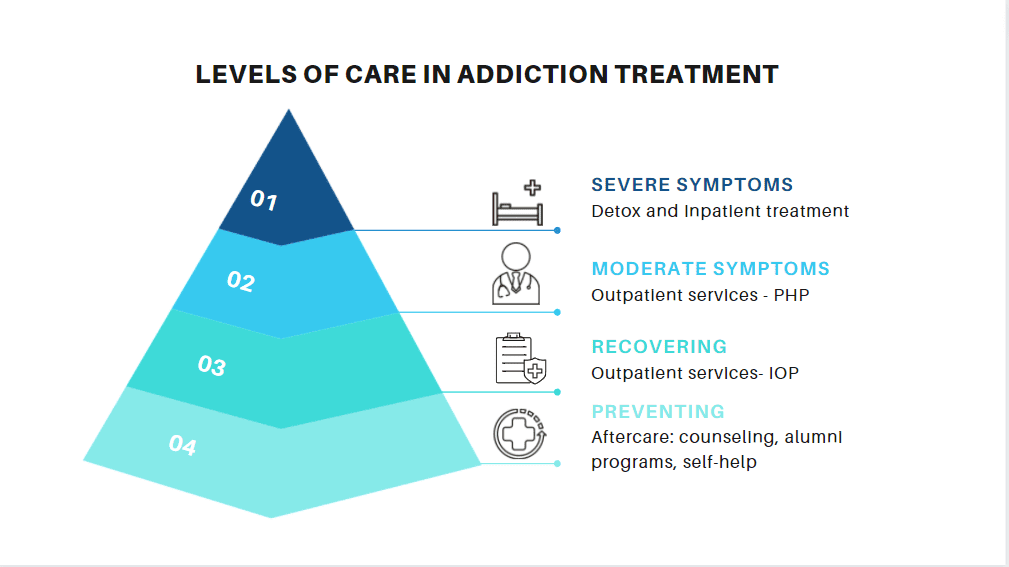Intensive Outpatient Program (IOP):15 FAQs
Navigating the world of mental health and addiction treatment can feel overwhelming. If you’re considering an Intensive Outpatient Program (IOP), you likely have questions about what it entails, who it’s for, and how it works. Below, we’ve compiled the most frequently asked questions—along with clear, concise answers—to help you understand IOP and determine if it’s the right step in your recovery journey.

1. What Is an Intensive Outpatient Program (IOP)?
An IOP is a structured, non-residential level of care designed for individuals who need more support than traditional outpatient therapy but do not require 24-hour supervision. At Lifescape Recovery, our IOP provides daily therapeutic sessions—typically 3–4 hours per day, 3–5 days a week—while allowing clients to return home each evening. This model offers a balance of intensive treatment and flexibility, so you can continue working, attending school, or caring for family.
Key Features at Lifescape Recovery:
- Group and individual therapy led by licensed clinicians
- Evidence-based modalities (e.g., CBT, ACT, psychodynamic therapy)
- Medication management by board-certified psychiatrists
- Case management and referral services to community resources

2. Who Is Eligible for IOP?
Our IOP is appropriate for individuals with mild to moderate mental health disorders (such as depression, anxiety, PTSD) and/or substance use challenges who:
- Do not require 24-hour medical supervision.
- Have stable housing and a safe home environment.
- Can attend scheduled sessions (morning, afternoon, or evening).
- Demonstrate motivation to engage in treatment.
After a free initial consultation, a licensed clinician conducts a clinical assessment to confirm that IOP is the right level of care. If more intensive support is needed, we may recommend a Partial Hospitalization Program (PHP) or inpatient care instead.
3. How Long Does IOP Last?
While everyone’s treatment plan is individual, Lifescape’s IOP typically spans 8–12 weeks. Each week consists of 3–5 days of sessions, with 3–4 hours per day. Actual program length depends on factors such as:
- Severity of symptoms or addiction
- Progress demonstrated during weekly clinical reviews
- Insurance authorizations and documented medical necessity
Clinicians perform periodic assessments to determine readiness for step-down care (e.g., standard outpatient therapy) or whether an extension is needed to ensure stabilization.
4. What Can I Expect During an IOP Session?
A typical IOP day includes:
- Group Therapy (1–1.5 hours): Focus on skill-building—such as relapse prevention, emotion regulation, and interpersonal effectiveness—through interactive exercises and peer support.
- Psychoeducational Workshop (1 hour): Topics range from coping strategies and stress management to understanding triggers and developing healthy routines.
- Individual Therapy or Medication Management (30–60 minutes): One-on-one meetings with a therapist or psychiatrist to address personal challenges, adjust medications, or refine treatment goals.
- Case Management Check-In (15 minutes): Brief review with a case manager to address logistics (e.g., referrals, housing, vocational support) and answer questions about community services.
Weekly schedules are posted in advance so you can coordinate sessions with work, school, or family responsibilities.
5. How Does IOP Differ from PHP or Standard Outpatient?
- Partial Hospitalization Program (PHP):
- Hours per Day: 5–6 hours
- Days per Week: 5 days
- Intensity: Delivers near full-day structure—typically for individuals stepping down from inpatient care or needing daily medical monitoring.
- Intensive Outpatient Program (IOP):
- Hours per Day: 3–4 hours
- Days per Week: 3–5 days
- Intensity: Provides structured therapy without requiring a full-day commitment. Ideal for moderate symptoms.
- Standard Outpatient Therapy:
- Frequency: 1–2 sessions per week, each 45–60 minutes
- Intensity: Best for clients who have stabilized and need maintenance-level support.
Your clinician will recommend the appropriate level of care based on a comprehensive intake assessment. The goal is always to match you with the least restrictive, most effective treatment.
6. Are Telehealth IOP Sessions Available?
Yes. Recognizing that not every client can attend in-person sessions, Lifescape Recovery offers a hybrid IOP model. Through secure, HIPAA-compliant video platforms, you can participate in group therapy, individual counseling, and psychiatric visits remotely—provided you have a reliable internet connection and a private space. Virtual IOP mirrors the structure of our in-person program, so you receive the same level of support and accountability.
7. What Types of Therapy Are Offered in IOP?
Answer: Our IOP is built on evidence-based approaches, including:
- Cognitive Behavioral Therapy (CBT): Identifies and reshapes negative thought patterns and behaviors.
- Acceptance and Commitment Therapy (ACT): Teaches mindfulness and acceptance to reduce avoidance behaviors.
- Dialectical Behavior Therapy (DBT) Skills: Focuses on emotion regulation, distress tolerance, and interpersonal effectiveness.
- Psychodynamic Therapy: Explores underlying emotional conflicts stemming from past experiences.
- Solution-Focused Brief Therapy (SFBT): Emphasizes goal-setting and strengths to create immediate, positive change.
Additionally, we incorporate relapse prevention planning, psychoeducation on co-occurring disorders, and family or couples counseling sessions when appropriate.
8. How Is IOP Covered by Insurance?
Lifescape Recovery works with most major private insurance carriers (Aetna, Blue Cross Blue Shield, Cigna, UnitedHealthcare, etc.) and Medi-Cal (California Medicaid). During your initial call, our admissions team will:
- Verify your benefits—typically within minutes.
- Explain your copays, deductibles, and any out-of-pocket costs.
- Assist with prior authorizations if required.
For Medi-Cal recipients, IOP is a covered service under the Drug Medi-Cal Organized Delivery System (DMC-ODS) when medical necessity is documented by a Licensed Practitioner of the Healing Arts (LPHA). If your benefit requires an authorization, our team will coordinate with your insurance to secure approval for the recommended length of stay.
9. Can I Keep Working or Attending School While in IOP?
Absolutely. One of IOP’s greatest advantages is its flexibility. We offer:
- Morning Cohort: Ideal if you work afternoons or evenings.
- Afternoon Cohort: Suited for morning commitments.
- Evening Cohort: Best for 9-to-5 jobs or full-time students.
- Telehealth Option: Removes travel time entirely, allowing you to log in from home or the office.
By tailoring your schedule, you can maintain employment, academic progress, and family obligations while receiving intensive therapeutic support.
10. What Should I Bring to My First IOP Session?
Answer: On your first day, please arrive 15 minutes early and bring:
- A valid photo ID (driver’s license or passport)
- Insurance card(s) and any prior authorization documentation
- A list of all current medications (prescription and over-the-counter)
- Comfortable clothing (business casual is fine; we encourage layers in case rooms vary in temperature)
- A notebook and pen for jotting down psychoeducational materials and session notes
If you’re joining virtually, make sure your device is fully charged or plugged in, and that you’ve tested your internet connection. We’ll send a secure meeting link in advance.
11. How Do I Know When I’m Ready to Leave IOP?
Discharge from IOP is a collaborative decision made by your treatment team alongside you. Common indicators that you’re ready for step-down care include:
- Consistent attendance and active participation in all required sessions.
- Demonstrated mastery of coping skills, relapse prevention strategies, and emotion-regulation techniques.
- Stable mental health or sobriety for a clinically determined period (often 2–4 consecutive weeks).
- A safe, supportive home environment and a clear aftercare plan in place (e.g., weekly outpatient therapy, community support groups, sober living if needed).
Prior to discharge, your clinician will:
- Complete a final assessment to review progress.
- Collaborate with you to develop a detailed aftercare plan.
- Schedule any recommended follow-up appointments (e.g., monthly medication checks).
- Connect you with our Alumni Program for ongoing peer support.
12. What Happens After I Complete IOP?
Post-IOP, you have several options to maintain gains and prevent relapse:
- Standard Outpatient Therapy: Once-weekly individual or group sessions with a licensed clinician.
- Alumni Program: Monthly check-ins, social outings, and peer-led support groups facilitated by Lifescape Recovery staff.
- Community Referrals: 12-step or mutual-aid meetings (AA, NA), faith-based support groups, or SMART Recovery chapters in your area.
- Family or Couples Counseling: If loved ones remain in your support network, these sessions can solidify healthy communication patterns.
Our goal is to ensure continuity of care. Whether you stay connected with Lifescape’s alumni events or transition to community-based resources, you won’t walk alone.
13. Do Family Members Participate in IOP?
While IOP is client-focused, we recognize the importance of involving loved ones when appropriate. Family involvement can include:
- Family Psychoeducation Sessions: Educating family members about mental health or addiction, communication skills, and boundary setting.
- Multi-Family Groups: Where several clients and their families learn and practice skills together under clinical guidance.
- Family Therapy Appointments: Scheduled one-on-one sessions with a family therapist to address relational dynamics, codependency, or conflict resolution.
If involving family appears beneficial, your clinician will discuss options and schedule sessions accordingly.
14. How Can I Begin the Admissions Process?
Taking the first step is simple:
- Call Our Admissions Team: Available 24/7. They’ll gather basic information and verify insurance benefits.
- Schedule a Free Consultation: A licensed clinician conducts a brief phone or virtual screening to confirm that IOP is the right level of care.
- Complete Intake Paperwork: We’ll email you confidential forms to gather your clinical history, medication list, and emergency contacts.
- Initial Assessment: On your first day, expect a 60-minute evaluation with a clinician who finalizes your individualized treatment plan.
Most clients begin treatment within 24–48 hours of their initial call—so you don’t spend days waiting to get help.
15. Is IOP Confidential?
Yes. All IOP services at Lifescape Recovery are governed by HIPAA privacy regulations and California state confidentiality laws. Your treatment records, session notes, and communications are kept strictly confidential, except under the following circumstances (as required by law):
- Immediate risk of harm to yourself or others
- Suspected abuse of a child, elder, or dependent adult
- Court order for disclosure
Outside these situations, clinicians obtain your written consent before sharing any information.



Choosing IOP at LifeScape Recovery means opting for a flexible, structured program tailored to your unique needs. By attending 3–4 hours per day, 3–5 days a week for 8–12 weeks (with possible extensions if clinically necessary), you’ll gain access to evidence-based therapies, medication management, and a supportive community—yet still be able to fulfill personal and professional commitments.
If you still have questions or are ready to take the next step, call our 24/7 admissions team or visit our IOP page to request a free benefits check. You don’t have to face this journey alone; we’re here to guide you toward lasting recovery.
Published: May 23, 2025
Last Updated: June 01, 2025

Published: January 26, 2026
OCD vs. Autism: Understanding the Differences
Obsessive-compulsive disorder (OCD) and autism spectrum disorder (ASD) are often confused with one another. Both can involve repetitive behaviors, rigid routines, sensory sensitivities, and distress when things feel “off.” From the outside, the overlap can look striking. But in clinical treatment, the why behind those behaviors matters just as much as the behaviors themselves. At […]
Read more
Published: January 15, 2026
Obsessive-Compulsive Personality Disorder (OCPD)
People living with Obsessive-Compulsive Personality Disorder or OCPD often don’t see themselves as struggling with a mental health condition. They see themselves as responsible. Disciplined. Reliable. The person who holds everything together when others fall apart. But beneath that structure, many feel chronically tense, emotionally restricted, and exhausted by the pressure to do everything “the […]
Read more
Published: December 15, 2025
Why Mental Health & Addiction Spike During the Holiday Season?
The holiday season is often described as a time of joy, connection, and celebration. Yet for many individuals, it is also a period marked by increased emotional distress, worsening mental health symptoms, and a higher risk of substance use and relapse. Research consistently shows that rates of anxiety, depression, and addictive behaviors rise during late […]
Read more
